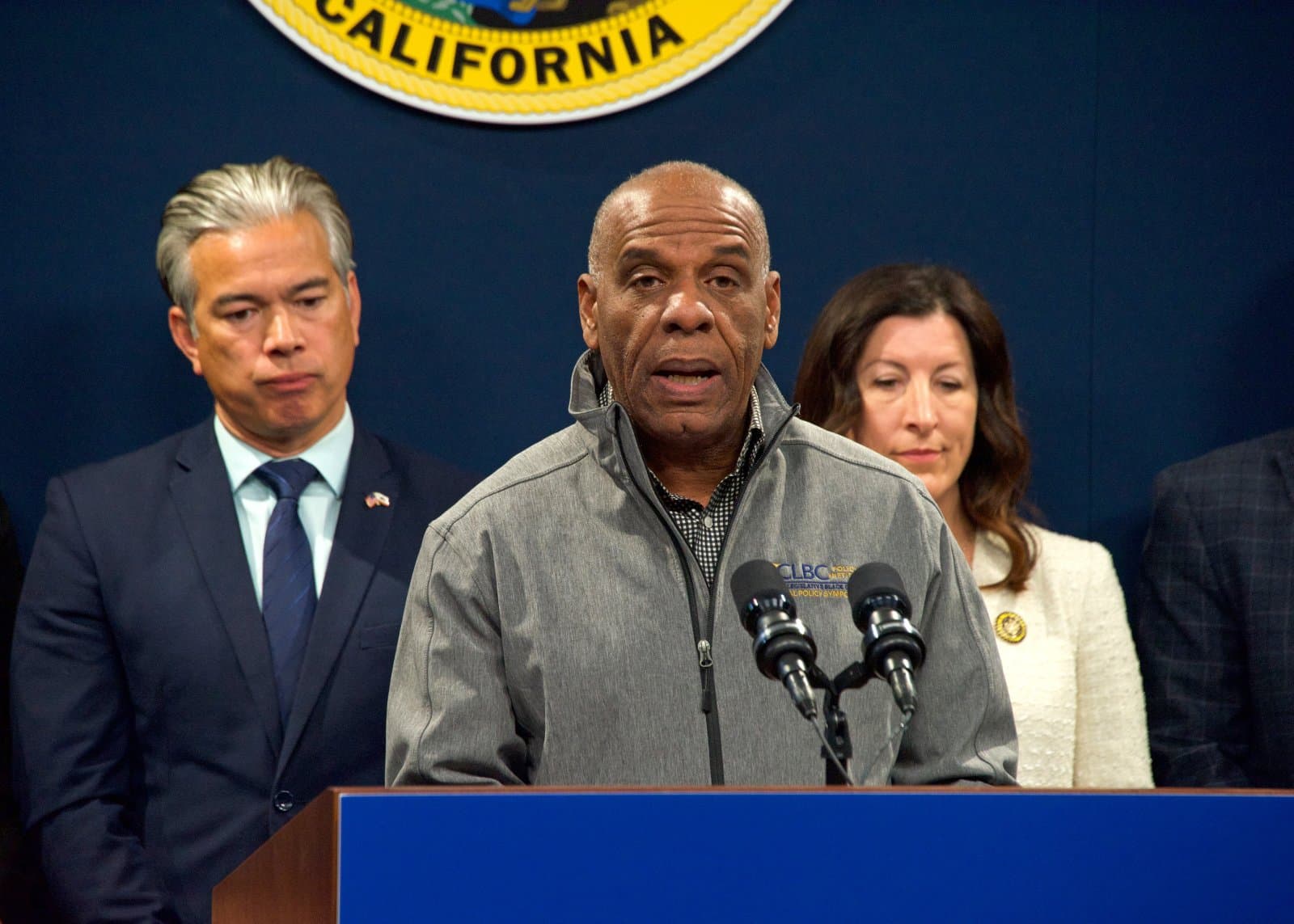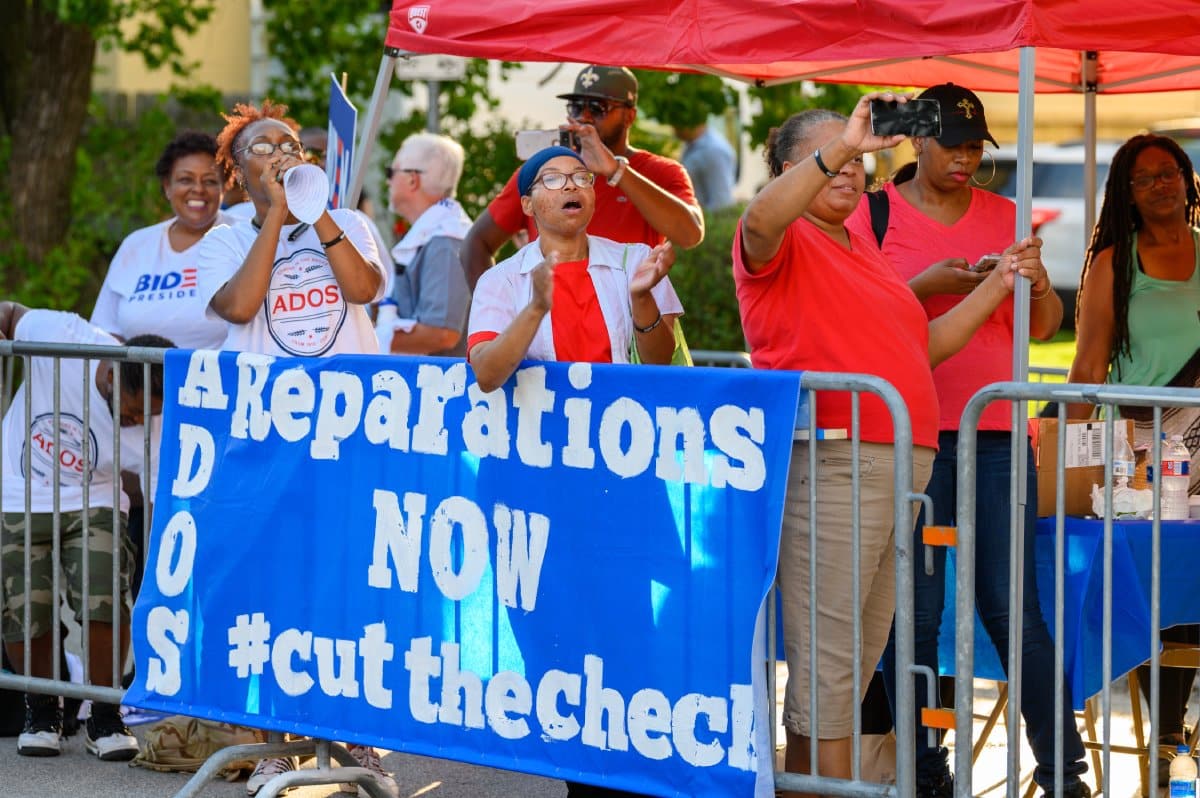In a bid to address the state’s long-standing legacy of slavery and racial discrimination, the California Senate has passed a trio of reparations bills.
Reparations Revolution

One of the bills, Senate Bill 1403, led by State Senator Steven Bradford, would establish the creation of the California American Freedmen Affairs Agency.
Tracing Ancestry

This agency would help Black families trace their ancestry and see if they qualify for reparations. If this bill passes, the agency would have offices to help with genealogy research and legal matters, making sure reparations are handled well.
Returning Property

Another bill, Senate Bill 1050, deals with the issue of properties taken from people because of their race. This bill will give back these properties to their original owners or their descendants, or give money if giving back the property isn’t possible.
Creating a Fund

Senate Bill 1331 aims to set up a “Fund for Reparations and Reparative Justice.” This fund would provide money for the reparations programs approved by the government, making sure there’s enough money to support these important changes.
The California Reparations Task Force

These bills come from the suggestions made by the California Reparations Task Force, a group of nine people who spent two years studying the history of racial harm in California and coming up with comprehensive plans for giving out reparations.
Listening to Experts

In total the task force proposed 115 ideas for policies to help Black Californians who have faced harm because of historical racism.
A Leader in Change

Senator Steven Bradford, the driving force behind these bills, explained that this “is about demonstrating our state’s commitment to not only recognizing the past but also taking meaningful actions toward an equitable future.”
Inheriting Debt

Bradford said California “bears great responsibility” to atone for injustices against Black Californians. “If you can inherit generational wealth, you can inherit generational debt. Reparations is a debt that’s owed to descendants of slavery. These are not a handout or charity by any measure. It is what was promised, it’s what is owed and what is 160 years overdue.”
Driving Change

He called the creation of the California American Freedmen Affairs Agency “the first step California can take in righting these wrongs.”
Facing Opposition

Despite progress, some people are against reparations. Critics argue that the state’s budget deficit makes the promises of reparations impractical.
Criticisms and Concerns

Republican Assembly member Bill Essayli remarked, “It seems to me like they’re putting, number one, the cart before the horse. They’re setting up these agencies and frameworks to dispense reparations without actually passing any reparations.”
Practical Challenges

The Senate Appropriations Committee has also raised criticisms concerning the California American Freedmen Affairs Agency. They claim that running the new agency could cost the state about $1 million each year.
Assessing the Cost of Reparations

While the Committee didn’t say how much it would cost to put the other bills into action, they did state that investigating claims from families who say their land was stolen could cost hundreds of thousands of dollars.
Looking Beyond California

California isn’t the only state looking towards reparations. New York and Illinois have established commissions to explore reparations, but none have advanced as far as California.
Evanston’s Example

Evanston, Illinois, was the first city to offer reparations for unfair housing policies in 2021.
Decades of Debate

On a national level, there’s been talk about reparations in Congress for over 30 years – but there’s been no movement happening yet.
Apologizing and Recognizing

Alongside these reparation bills, the California Assembly recently advanced a bill to issue a formal apology for the state’s role in slavery and racial discrimination.
Governor Newsom’s Apology

This follows Governor Gavin Newsom’s apology in 2019, in which he formally apologized for how the state had mistreated and been violent towards Native Americans in the past.
Support from Communities

Advocacy groups like the Coalition for a Just and Equitable California have been pivotal in pushing these bills forward.
Laying the Groundwork

In a statement they wrote, “Together, these bills lay the groundwork for full Reparations, including direct monetary payments, the return by the state of California of stolen wealth, and the provision of new opportunities to thrive and prosper. We’re closer to Reparations than we’ve ever been.”
Remote No More: 19 Companies Returning to the Office

As the pandemic wanes, companies are recalling remote workers back to the office, sparking debates on fairness, costs, and convenience. However, there are also notable productivity, coworking, and mental health benefits to consider. Feeling the effects of these changes? Remote No More: 19 Companies Returning to the Office
8 Costco Must Buys and 8 to Leave Behind

Ever wandered Costco’s aisles, questioning if that giant jar of pickles is a real bargain? Or debated buying tires where you get your rotisserie chicken? Welcome to the definitive guide to Costco shopping—a journey to save money, prevent regrets, and offer quirky insights into bulk buying. 8 Costco Must Buys and 8 to Leave Behind
23 Reasons Texas Is the Next Big Thing

Texas is becoming a beacon of opportunity, blending cultural heritage with economic growth. From its landscapes to its industries, the Lone Star State offers a dynamic lifestyle. Here are 23 reasons why Texas stands out, attracting entrepreneurs, artists, tech professionals, and families seeking new beginnings. 23 Reasons Texas Is the Next Big Thing
Featured Image Credit: Shutterstock / michelmond.
The content of this article is for informational purposes only and does not constitute or replace professional financial advice.

